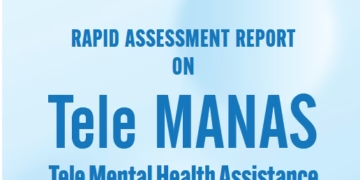WARSAW, October 7, 2020 – The Polish economy is on course to record its first recession in nearly three decades, with an expected contraction of 3.9 percent this year, according to the latest edition of the World Bank’s Europe and Central Asia Economic Update, released today.
Easing of pandemic-related restrictions, normalization of economic activity in many sectors, the large economic package being implemented by the government, as well as recovery in key trading partners, are expected to support a moderate recovery in 2021.
According to the World Bank, growth in Poland is expected to reach 3.5 percent in 2021. The projected recession in 2020 is less pronounced than the 4.2 percent contraction anticipated in June, while the recovery in 2021 is expected to be faster than the previously-forecasted 2.8 percent. Considerable downside risks to this outlook persist, however.
“The Polish economy was strong when the COVID-19 pandemic hit. Many years of uninterrupted growth, prudent macroeconomic policies, access to EU funds and social programs have helped cushion the effects of the crisis and limit the negative consequences,” says Marcus Heinz, World Bank Resident Representative for Poland and the Baltic States. “At the same time, the pandemic is a reminder that the crisis is sparing no-one. Therefore, we have to start investing in a post-pandemic resilient recovery by strengthening health care, education, and improving the investment climate, among other measures.
The pandemic-induced contraction in 2020 is also expected to increase poverty in all countries in Europe and Central Asia. Based on the $5.50 per day poverty line, customarily used in upper-middle-income countries, an additional 6 million people may slip into poverty.
The pandemic has adversely affected education and health in the region. The virus has already killed thousands of people, and some people who survive will suffer long-term damage to their health. School closures may lead to learning losses equivalent to one-third to one full year of schooling, and they are likely to exacerbate inequalities by disproportionately affecting students from disadvantaged backgrounds.
A special analysis in the report finds that improving access to and quality of tertiary education and reducing adult risk factors for health are key for a resilient recovery in the region. While countries in the region provide relatively good basic education and health services, as measured by the World Bank’s Human Capital Index, more needs to be done for individuals and countries to succeed in the future.
“Just surviving is not enough, nor is simply completing basic education. Adults need to remain healthy, active and productive throughout their lives,” said Asli Demirgüç-Kunt, World Bank Chief Economist for Europe and Central Asia. “It is especially important to reduce the health risks of obesity, smoking and heavy drinking which can jeopardize active and productive aging, and to ensure higher education institutions prepare students for the challenges of today’s job markets.”
Across the region, more than 18 percent of the population is obese, nearly 23 percent of people are heavy episodic drinkers, and nearly 26 percent are current smokers. These health risks are particularly high in Eastern Europe and Russia, where adult life expectancy is also the lowest in the region. Prevalence of these risks increases not only the likelihood of conditions such as cardiovascular disease, but also the mortality and morbidity consequences of infectious diseases like COVID-19.
Good quality higher education is critical for people to remain competitive in fast-changing labor markets. Improving higher education in countries of Western Balkans, Eastern Europe, South Caucasus, and Central Asia would also help them retain their high-skilled labor force in the face of sustained out-migration.















































